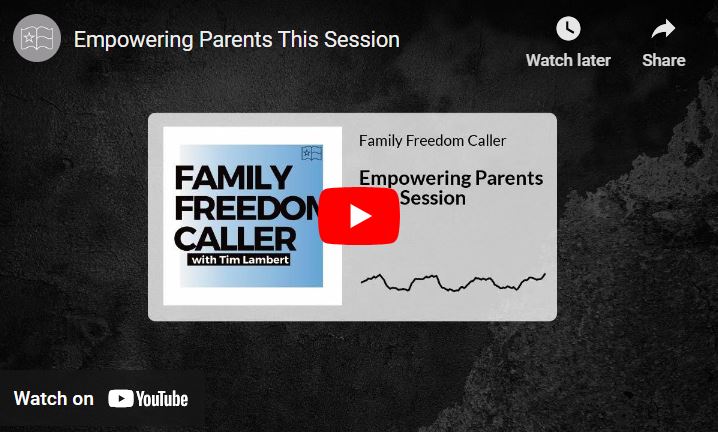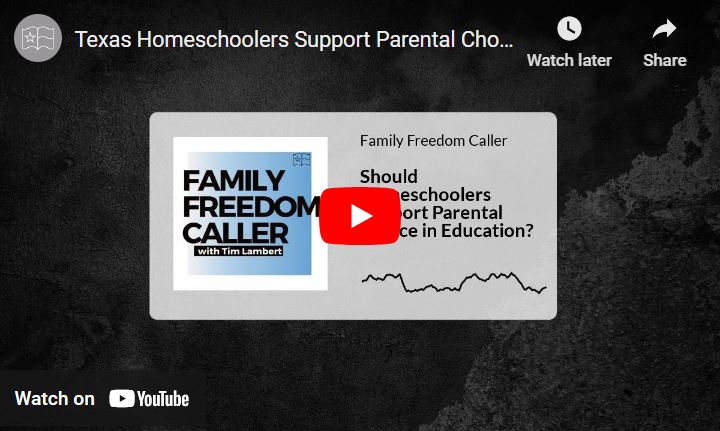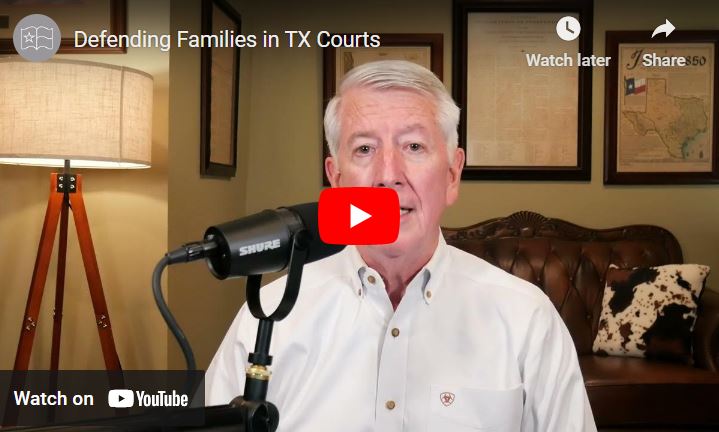This session has been an incredible success for the fight for family rights.
On May 15th, the Child Trauma Prevention Act (CTPA) became law in Texas! March 14th also saw victory for families in the Texas Supreme Court when it once again sided with parental rights and against CPS overreach.

What is the Child Trauma Prevention Act?
The CTPA is the product of four years of hard work by THSC with other groups to provide significant due process protections for children and families involved in Child Protective Services (CPS) cases.
In 2017, THSC worked to pass several major CPS reforms to protect children and families. Although these reforms were some of the most significant CPS reforms passed by the legislature in recent years, one crucial reform failed to pass.
This reform would have required CPS to specific provide evidence to support each of their claims against parents, rather than the current CPS practice of literally accusing parents of every available offense listed in the Family Code. Unfortunately, this reform failed to pass in 2017 due to state budgetary constraints.
Governor Abbott then commissioned a workgroup (including THSC) to study the issue and determine the best way to solve the problem of CPS requesting termination based on accusations that it does not have evidence to support.
THSC and the workgroup then spent the next four years researching and writing a comprehensive CPS reform bill to solve this and other significant problems in the CPS system.
The bill, the CTPA, solves these problems by:
- Clarifying that CPS attorneys are subject to the same rules as other attorneys and can be sanctioned for making claims they know to be false;
- Protecting children and families from CPS investigation for normal, everyday activities such as playing outside;
- Ensuring fair treatment of parents by requiring that CPS must prove their accusations against both parents in order to remove the child from both parents and that CPS cannot simply take a child from both parents because one parent did something wrong.
- Requiring courts to return children home the moment it can be determined that there is no longer any danger to the child;
- Ensuring that trials in CPS cases must be completed within reasonable deadlines and not drag on endlessly; and
- Ensuring that minimum due-process standards are met before families can be forced by CPS to complete services which are sometimes very difficult for them to schedule.
Last week, the Child Trauma Prevention Act was officially enacted into law! This is a historic success for Texas families, but it isn’t the only success this year.
Major TX Supreme Court Victory
On March 15th, the Texas Supreme Court delivered an opinion on the case In re M.D.M., solidifying protections for families from unfounded CPS removals.
In this case, an infant had strange bruising which a doctor believed had been caused by abuse. Even though a specialist inspected the child and disagreed that the injuries could have been caused by abuse, CPS removed the child.
Texas law requires that CPS make “reasonable efforts” to avoid the need for removing a child. This would include conducting an investigation, working to resolve any dangers in the home, asking the alleged perpetrator to leave in order for the child to remain, and other similar conduct.
Here, CPS argued that, because one doctor believed that the injuries were child abuse, CPS was absolved of any responsibility to conduct any further investigation or make any additional “reasonable efforts,” to keep the child at home. CPS specifically declined to investigate the explanations offered by the medical specialist who reviewed the child’s injuries and disagreed that they could have been caused by abuse.
Had CPS prevailed on this argument, the case would have nullified existing protections against governmental abuse and effectively shifting the burden of proof to the parents any time a doctor believed the parents had done something wrong. Once a doctor made an accusation, instead of CPS having to prove that abuse occurred, parents would have had to prove it didn’t occur.
THSC filed an amicus brief defending the right of parents to raise their children and reminding the court that this right is a fundamental, constitutional right. The brief specifically argues that CPS still must conduct a meaningful investigation and make reasonable efforts to keep a child with the child’s family, even if one doctor says that abuse occurred.
The Texas Supreme Court’s decision sided with the family, protecting family rights and ensuring that parents are not required to prove their innocence the moment one doctor accuses them of wrongdoing. This court decision was an incredible success for the rights of families in Texas.
Advocating for Texas families by passing legislation to reform CPS and filing briefs to protect them in court are just a couple ways that THSC is Keeping Texas Families Free!
Text “TXHOMESCHOOL” now to 919191 to receive legislative alerts!
This session has been an incredible success for the fight for family rights.
On May 15th, the Child Trauma Prevention Act (CTPA) became law in Texas! March 14th also saw victory for families in the Texas Supreme Court when it once again sided with parental rights and against CPS overreach.

What is the Child Trauma Prevention Act?
The CTPA is the product of four years of hard work by THSC with other groups to provide significant due process protections for children and families involved in Child Protective Services (CPS) cases.
In 2017, THSC worked to pass several major CPS reforms to protect children and families. Although these reforms were some of the most significant CPS reforms passed by the legislature in recent years, one crucial reform failed to pass.
This reform would have required CPS to specific provide evidence to support each of their claims against parents, rather than the current CPS practice of literally accusing parents of every available offense listed in the Family Code. Unfortunately, this reform failed to pass in 2017 due to state budgetary constraints.
Governor Abbott then commissioned a workgroup (including THSC) to study the issue and determine the best way to solve the problem of CPS requesting termination based on accusations that it does not have evidence to support.
THSC and the workgroup then spent the next four years researching and writing a comprehensive CPS reform bill to solve this and other significant problems in the CPS system.
The bill, the CTPA, solves these problems by:
- Clarifying that CPS attorneys are subject to the same rules as other attorneys and can be sanctioned for making claims they know to be false;
- Protecting children and families from CPS investigation for normal, everyday activities such as playing outside;
- Ensuring fair treatment of parents by requiring that CPS must prove their accusations against both parents in order to remove the child from both parents and that CPS cannot simply take a child from both parents because one parent did something wrong.
- Requiring courts to return children home the moment it can be determined that there is no longer any danger to the child;
- Ensuring that trials in CPS cases must be completed within reasonable deadlines and not drag on endlessly; and
- Ensuring that minimum due-process standards are met before families can be forced by CPS to complete services which are sometimes very difficult for them to schedule.
Last week, the Child Trauma Prevention Act was officially enacted into law! This is a historic success for Texas families, but it isn’t the only success this year.
Major TX Supreme Court Victory
On March 15th, the Texas Supreme Court delivered an opinion on the case In re M.D.M., solidifying protections for families from unfounded CPS removals.
In this case, an infant had strange bruising which a doctor believed had been caused by abuse. Even though a specialist inspected the child and disagreed that the injuries could have been caused by abuse, CPS removed the child.
Texas law requires that CPS make “reasonable efforts” to avoid the need for removing a child. This would include conducting an investigation, working to resolve any dangers in the home, asking the alleged perpetrator to leave in order for the child to remain, and other similar conduct.
Here, CPS argued that, because one doctor believed that the injuries were child abuse, CPS was absolved of any responsibility to conduct any further investigation or make any additional “reasonable efforts,” to keep the child at home. CPS specifically declined to investigate the explanations offered by the medical specialist who reviewed the child’s injuries and disagreed that they could have been caused by abuse.
Had CPS prevailed on this argument, the case would have nullified existing protections against governmental abuse and effectively shifting the burden of proof to the parents any time a doctor believed the parents had done something wrong. Once a doctor made an accusation, instead of CPS having to prove that abuse occurred, parents would have had to prove it didn’t occur.
THSC filed an amicus brief defending the right of parents to raise their children and reminding the court that this right is a fundamental, constitutional right. The brief specifically argues that CPS still must conduct a meaningful investigation and make reasonable efforts to keep a child with the child’s family, even if one doctor says that abuse occurred.
The Texas Supreme Court’s decision sided with the family, protecting family rights and ensuring that parents are not required to prove their innocence the moment one doctor accuses them of wrongdoing. This court decision was an incredible success for the rights of families in Texas.
Advocating for Texas families by passing legislation to reform CPS and filing briefs to protect them in court are just a couple ways that THSC is Keeping Texas Families Free!
Text “TXHOMESCHOOL” now to 919191 to receive legislative alerts!










